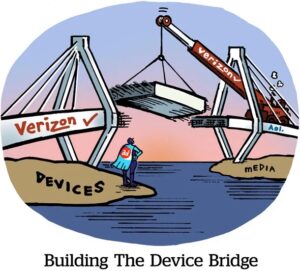 In a reflection of its shift toward a “premium” exchange strategy, Yahoo!’s Direct Media Exchange – acquired as part of the Right Media acquisition – is being shuttered effective January 2010. In an email, participating DMX publishers have been notified today:
In a reflection of its shift toward a “premium” exchange strategy, Yahoo!’s Direct Media Exchange – acquired as part of the Right Media acquisition – is being shuttered effective January 2010. In an email, participating DMX publishers have been notified today:
“Right Media will discontinue the DMX platform on January 31, 2010, so that we may focus on becoming a premium and differentiated exchange marketplace. After January 31, the DMX platform will no longer serve ads. DMX participants will be able to access reports until March 1, 2010.
We have appreciated working with you, and would welcome the opportunity to do so again if our business strategies are more aligned in the future.”
The Direct Media Exchange “DMX End of Life FAQ” is here.
DMX, a separate business from Right Media Exchange, served smaller self-serve publishers and allowed them to monetize inventory to an open auction of ad networks.
Clearly, Yahoo! does not want these publishers’ inventory going forward as the FAQ offers a terse response regarding what the next steps are for the DMX publisher:
“Q: What other products and services do you recommend?
A: We will provide you with contact information for each of the ad networks that have been participating in DMX and you may reach out to them to explore opportunities. Naturally, you are free to explore ad serving platforms that meet the needs of small publishers.”
At the bottom of the FAQ, the new positioning is clearly stated in addition to Yahoo!’s strategic needs regarding “openness”:
“Q: If you are focusing on ‘premium’, and discontinuing DMX, doesn’t that make you not ‘open’ anymore?
A: The term ‘open’ was used to describe how members of the exchange could directly connect with other members and use our technology to enable efficient buying or selling on the exchange. We still enable members on the exchange to directly connect with each other but we are selecting which buyers and sellers that can have seats on the Exchange.”
Finally, a spokesperson for Yahoo! sent AdExchanger.com the following official statement which reiterates the DMX FAQ (Acronyms, I love ’em!):
“After careful consideration, Right Media has decided to discontinue the Direct Media Exchange (DMX) platform on January 31, 2010. This decision was made so that we may focus on evolving the Right Media Exchange into a premium and differentiated marketplace.”













